Help wanted, badly
Short-handed businesses struggle to hire as economy roars back, though teens and college students prove willing.
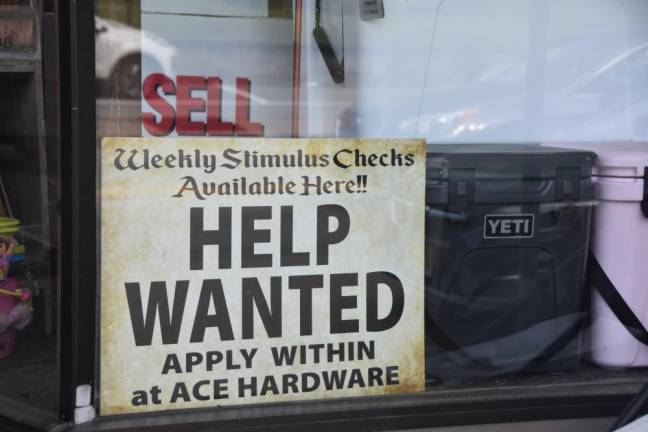

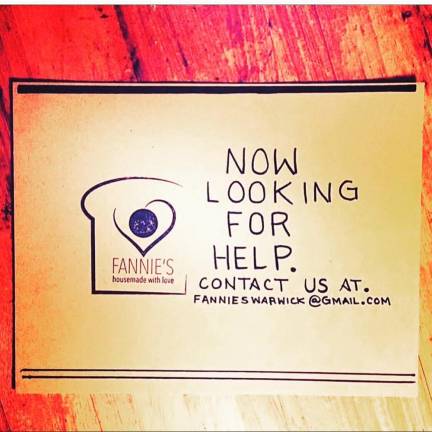
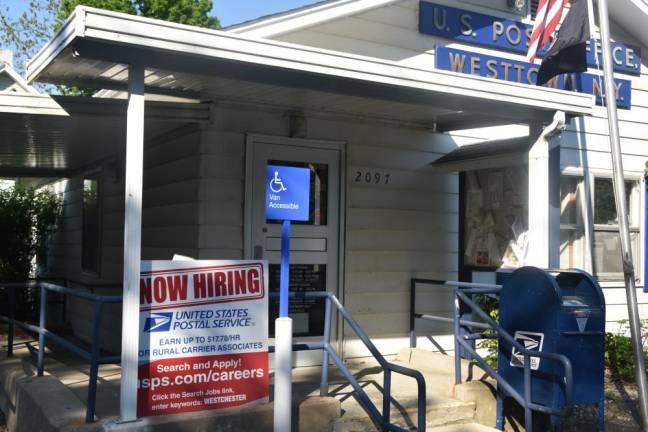
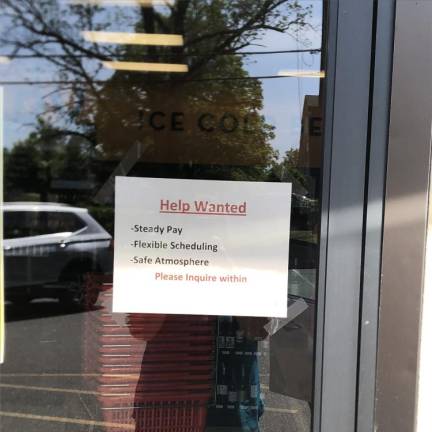
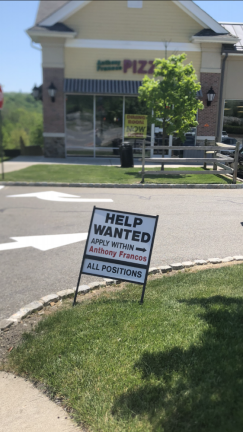
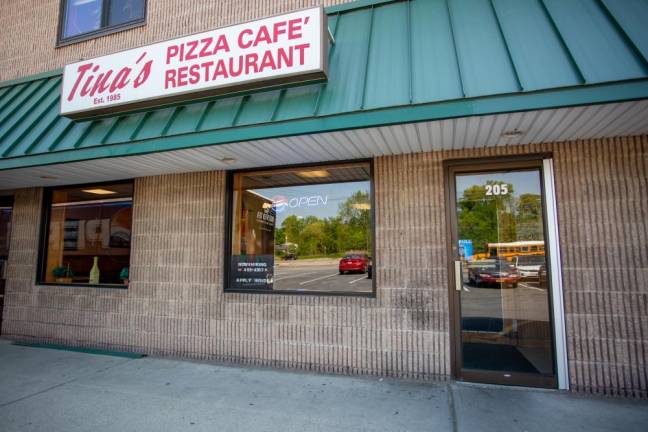
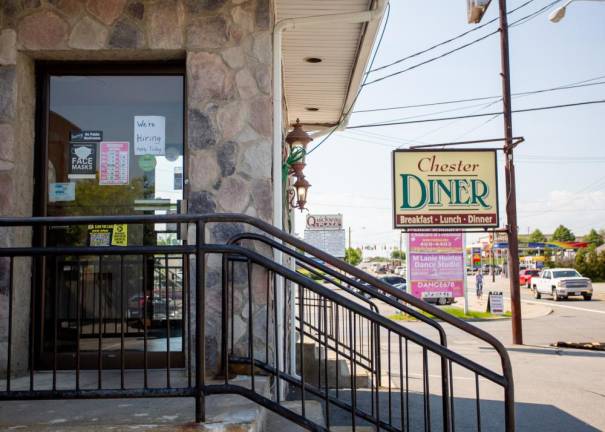
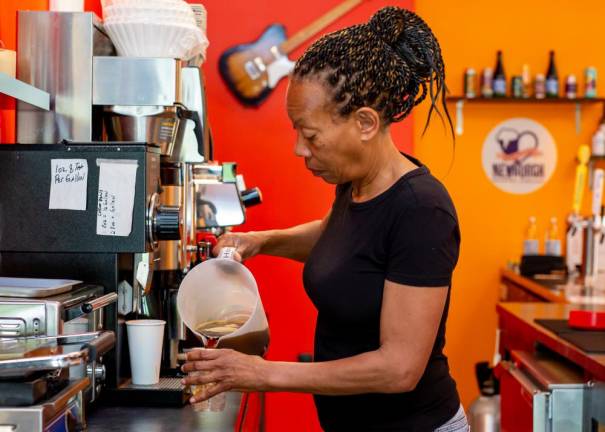
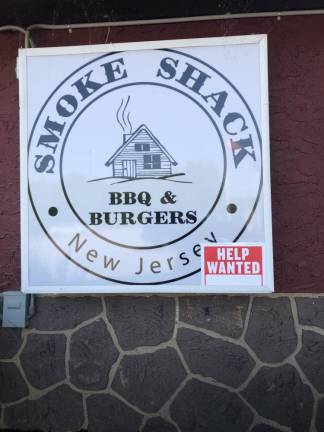
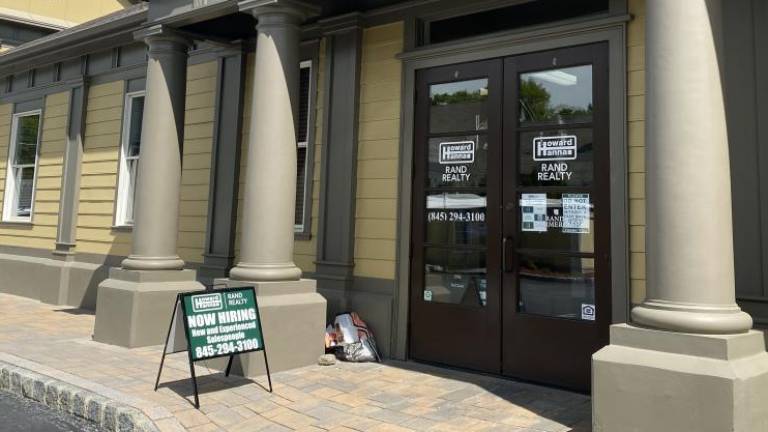
It’s been a decade since she bartended, but Kathy Aherne is back slinging drinks at the Captain’s Table in Monroe, N.Y.
“I guess you could say I’m the manager,” said Aherne. “My husband owns it so I just do everything.” The owner’s son, too, has been working double shifts as bar manager because the restaurant is still short about five servers and two bartenders. “Saturday, Sunday he works open to close because we just can’t find the right person,” she said.
Waiters, bus boys, dishwashers, cooks, bartenders – the unassuming ranks that once stood ready to take our order have thinned dramatically, becoming visible all of a sudden in the startling fact of their absence.
The immediate fallout includes long wait times for a burger, curtailed hours of operation, shuttered chain storefronts and stressed-out skeleton crews.
Time will tell whether this dynamic is a passing reality or whether it will domino into business failures and a slowed national economic reboot.
“We have a great supply of high school kids and some college kids,” said Aherne. What they badly need, though, are experienced bartenders who can make drinks fast and know when to cut people off.
“No, they’re not coming in for those jobs,” she said. As for their pre-pandemic staff, “They had to go get other careers, between real estate, construction, doing their own thing, because there were no bar stools.”
A Facebook post of Aherne’s went viral in April, seeking a “sane, non dramatic” server who “must have an appreciation of skillful sarcasm, doesn’t cry easily, must be able to work nights & weekends & doesn’t expect a gold star for showing up.”
The post landed on the news in Myrtle Beach, South Carolina, but didn’t produce what she was hoping for: a hire. “I was disappointed that no one really came in due to the post,” she said. “Some kids did, but we didn’t get that person that we really need.”
Where is everyone?
Business is bustling as the weather warms and pandemic restrictions ease. Yet despite a profusion of job postings, a substantial slice of the population is still not working. New York remains saddled with an 8.5 percent unemployment rate, one of the highest in the country, second only to Hawaii. New Jersey and Pennsylvania are also in the top 10 when it comes to jobless residents; in Passaic County, N.J., one tenth of eligible workers are still jobless, nearly twice as many as last March.
Plenty of people are pounding the pavement but having trouble finding jobs in their field as the economy staggers back to health at an uneven pace.
Others are enjoying a blessed sabbatical from the relentless grind. According to a Straus News poll of out-of-work readers, nearly a third did not plan to return to work in the near future, citing reasons from health worries to childcare quandaries to the issue that has turned into the elephant in the room: they are collecting as much or more in boosted unemployment as they made working.
The debate
The debate over extended unemployment benefits – a federal anti-poverty measure due to expire in September – has ratcheted up in the wake of a disappointing April jobs report. At least 21 GOP governors have announced plans to cut off the extra $300 weekly checks early in their states. The U.S. Chamber of Commerce is lobbying to kill the supplemental assistance, saying that with one in four recipients taking home more than they did working, unfilled positions now pose a real threat to economic recovery.
When people are “making more money staying home,” said Aherne, of Captain’s Table, “they don’t want to risk losing that money that they know they’re getting in every week.”
Another way to look at it: food service workers are chronically underpaid in this country and it’s little wonder that they’re unwilling to risk exposure to a potentially deadly virus for a job that was stressful and thankless even in the best of times.
Raising pay, raising prices
“This is happening because the minimum wage, especially in Pennsylvania, is absurdly low,” said Milford Mayor Sean Strub, owner of Hotel Fauchere in Milford, Pa.
Pennsylvania’s minimum wage is still the federal baseline of $7.25 an hour, where it has been since 2009 while all its neighboring states have raised theirs.
“A single mother working full-time at minimum wage is still living below the (very low) federal poverty line,” said Strub.
Pennsylvania’s food prep and service workers make an average of $26,130 a year, below the national industry average, according to the Bureau of Labor Statistics.
Their counterparts across the Delaware are better paid, typically making $34,970, but that aforementioned single mom trying to hold down a waitressing job still falls below the poverty line in New York if she has two kids.
However it happens – by government mandate or market pressure – a minimum wage hike is long overdue, said Strub. Not only would it benefit workers, but their increased spending power would put more money back into the local economy.
Having raised wages over the last couple years, Strub is caught in that perpetual tug-of-war faced by small business owners: the desire to pay the staff better versus the inevitable loss of customers that would come of raising prices.
That race to the bottom has meant that many service workers have long been stuck making starvation wages. But as the dogfight for workers drags on, that’s beginning to change. “If every restaurant has to raise prices, then we can do so as well without it costing us significantly in revenue,” said Strub. “Since it is across the entire sector, everyone will have to do it.”
Indeed, from mom-and-pop cafes to profit-churning behemoths like Amazon, McDonald’s and Chipotle (which have all seen recent employee walkouts) wages are riding a rising tide.
Raising wages is a good and necessary start, said Kim Gabelmann, owner of Conscious Fork in Warwick, N.Y. We could definitely use a push us toward the European model where a waiter is considered an important occupation and compensated according, she explained. But there are other longstanding systemic issues that make it hard to find and keep talent.
She points to a lack of affordable rentals in well-to-do towns like Warwick that are within reach of hourly wage earners, even if they make twice the minimum wage.
Gabelmann happens to have strong roots in the city, where she worked for decades in advertising. Recruiting a “cool vegan” Brooklynite to work up here could make a lot of sense, except: “If they did, where are they living? We don’t have that type of housing in this area. There’s a lot of issues to finding people in the service industry around here. And yet Warwick is opening a restaurant like every other week.”
Forged in the fire of the free market
Then again, the reluctance to get back to the hustle may have less to do with money than with a profound shift in how we view the role of work in our lives. As Americans, we’ve been forged in the fire of the free market, but it’s been a hell of a year for reassessing priorities. People spanning the generational spectrum have decided that from now on, they want their jobs to be more than just a paycheck.
“We’re running into people who don’t necessarily want to work, like, a nine-to-five,” said Dakota Rudolph, owner of Valkyrie Coffee Roasters in Chester, N.Y.
The café has become a popular spot for remote workers to set up with their laptops, particularly on Mondays and Fridays. “They were sharing with us that they want to get out of the job they’re in right now,” said Rudolph, “not so much because the benefits aren’t good or the pay isn’t good but because they found that during the pandemic it just didn’t satisfy them.”
When Rudolph was toying with the idea of opening a second location, his three baristas said nope. “Our staff wanted to stay here because of the relationships that we’ve formed within this community,” he said.
He offered them more money. “They’re like no, we want to stay here.”
The elusive ‘right person’
He’s heard about the labor shortage, of course, but Valkyrie is actually inundated with applications right now, said Rudolph – though not from the experienced baristas and coffee roasters that he needs. The resume stack is heavy on “value-based applications, I guess is the best way to say it. People are like, I love the atmosphere of the place, I love the friendliness and the ability to serve people, and that’s become a part of their priorities that they’re bringing to us when they say they want to apply.”
Still, “I like coffee” isn’t exactly a credential. So as sales keep climbing ever more steeply up, Rudolph has been working 60- and 70-hour weeks, keeping a lookout for that elusive “right person.”
‘Done with public-facing jobs’
“I’m back in the trenches. And by the way, it’s going really well with me in there,” said Gabelmann, who’s been manning Conscious Fork six days a week without a day off for over a year, then going home to do the bookkeeping.
“I have more things that I want to do. It’s not a good use of my time to be behind the juice bar all day, but it forced me to go back to it and I feel like the business is better than it’s ever been. It’s just going really smoothly, but now it’s time to pass the torch again – hopefully.”
She has been calling and re-calling old employees, who keep saying thanks but no thanks.
“One person told me they were done with public-facing jobs. People were freaked out with germs and catching stuff from the public,” she said. “I had some great employees back in the day, but they’re either done with the service industry or...” she trails off, at a loss. “Because they don’t have other jobs.”
Not just food service
It’s not just the people who feed us who are MIA; the people who clothe us and fit us for glasses are in short supply, too. “My God, you have no idea,” said Alan Schwartz, co-owner of Pearle Vision Eye Care in Sparta, N.J., when asked if he’s having trouble finding help.
“I’ve seen difficulties in hiring professionally trained people, but not like this.”
An optician since the days he wore bellbottoms and a mullet, Schwartz has weathered three recessions. But this time, there’s a wrinkle. “I don’t think we’ve ever had helicopter money before like this. Paying people to stay home.”
As a medical retailer, Schwartz stayed open through the pandemic even while the mall that houses his original location in Rockaway, N.J., shut down. Some of his staff took the pandemic’s forced hiatus as an opportunity to go back to school full-time. Alongside his wife, an optometrist, Schwartz has been putting in 50-hour weeks since last March, bouncing from back office to front of store.
“I can’t have people walking around, driving around in broken glasses,” he said. “I have no problem doing that. You know, it’s all I know.”
‘An employee’s market’
But it’s beginning to feel like “enough is enough,” a common refrain among essential workers of all stripes who continue to shoulder an outsize burden with no end in sight. The hiring process keeps dead-ending for one reason or another, said Schwartz, like entry-level applicants holding out for unrealistic starting salaries. “We’re talking about a girl sitting at the front door checking people’s temperatures,” he said. “I really believe it’s an employee’s market.”
Newly empowered applicants appear to be taking more of a window-shopping approach to the job search, employers report. That’s particularly the case as states reinstate work search requirements for receiving unemployment, obliging recipients to document their efforts to find a job – and sometimes incentivizing them to apply will-nilly to jobs they may not actually want. Applicants have been demanding, and receiving, sign-on bonuses; requesting to be paid in cash so that they can continue collecting unemployment; and informing the boss of the hours they can work, instead of the other way around.
Some small businesses have all but given up trying to hire, focusing instead on muscling through the next few weeks, when help will arrive in the form of college students home for the summer.
“Oh my God, I love my college students. I’m literally marking down on my calendar ‘til June 3 when they come back,” Gabelmann said of the pair of young women who became indispensible as Conscious Fork’s pandemic skeleton crew. “We’re trying to just make it. We’re almost there,” she said. “That’ll buy me until the end of August. Then once we get to the end of August it’ll be the same problem again.”
“Just gotta get through this hump,” said Gina Stafford, owner of Meadow Blues Coffee in Chester, N.Y.
She’s down a worker, but filling the position has been an exercise in frustration:
One interviewee turned out to be a no-show.
A former employee said she wanted to wait for unemployment to run out before returning.
And Stafford had to let go a new hire with a lackluster work ethic.
“Literally I’ll just do what I need to do,” she decided. “Sooner or later something’s gonna change.”
‘We all want to go out to eat, but who’s working the tables?’
Business is the best it’s been since she opened almost a decade ago, said Gabelmann, of Conscious Fork. “We’re making money,” she said. “That’s why I’m like, why doesn’t anyone want this job?”
Street dining, which started up last spring in Warwick, has expanded, with restaurants taking over Main Street, Spring Street and Railroad Avenue on weekends. That sounds like a win-win, but restaurants are stressing.
“They can’t hire anyone. They’re having such a hard time,” said Gabelmann. “The street dining, it’s going to add so many more tables, and longer hours and it’s just like, there’s no one to do these jobs, yet we all as community members want to go out to eat and do this stuff. But who’s working the tables?”
Connecting local businesses with those keen to work
“There’s more business in this area than you can shake a stick at,” said Monroe Town Councilman Sal Scancarello. He’s in the food industry by day, as a Boars Head distributor whose wife owns LoveBites Café in Monroe. “Everyone’s seeing the influx of people that are moving up from the city. Restaurants are packed. They just don’t have cooks, they don’t have dishwashers. Owners are in the kitchens cooking because they can’t find anyone to work. The problem is when it comes down to it, if you need 12 people to run your restaurant on a Saturday night, you’re relying on yourself and six other people if you’re lucky.”
Putting social media to use, Scancarello has been connecting local businesses with one demographic that’s keen to work. Or rather, their moms. “I think the eager ones to work are the younger ones that need jobs and their parents are pushing them to get jobs,” he said. High schoolers, he points out, aren’t collecting unemployment.
Scancarello reached out to about 20 local businesses, asked them how many kids they were looking for and what age, and put them in touch with moms of teens. When we spoke, his outreach had matched two dozen young people to jobs, some as young as 14.
In the silver linings department, the upended power dynamic could be a golden opportunity for young people to break into the workforce, skipping over entry level salaries in high demand trades.
“There’s people out there that can get out of high school and get a $50,000 or $60,000 job just because the shortage of help,” said Scancarello, who as a young man went into the family business rather than going to college and never looked back. “I totally think it’s something that could be positive.”
That is, if they want to.
“It’s a matter of motivation and desire. We have to remember these kids have been in pajamas for a year,” said Ellen Vanderbeck, job placement coordinator at Orange-Ulster BOCES. High schoolers may also face obstacles like transportation to work. But they sure are in demand.
“This time of year restaurants are always begging for our kids,” she said, and this year they’re more desperate than usual. Every trade sector, from cooks to auto technicians to health careers, “They just want trainable bodies,” she said. The day we spoke, Legoland had signed 30 students, some of them culinary students.
“There’s opportunities out there for everybody, and it’s not like you really need to pound the pavement,” said Vanderbeck. “Just about everywhere you go, there are hiring signs.”